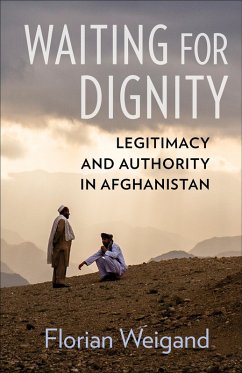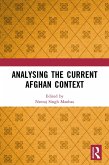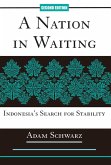In August 2021, Taliban fighters entered the presidential palace in Kabul, ending twenty years of international efforts to build a democratic state in Afghanistan. Did the Taliban's success rest on coercion and violence alone, or did they win the battle for public support through ideology and better services? Or did most people in the country not believe in the idea of the state at all, trusting only local elders and traditional councils? What is the source of legitimacy during armed conflict?
In Waiting for Dignity, Florian Weigand investigates legitimacy and its absence in Afghanistan. Drawing on hundreds of interviews, he examines the perspectives of ordinary people in Afghanistan as well as those of rival claimants to authority: insurgents, warlords, members of parliament, security forces, and community leaders. By exploring how different types of authority attempted to legitimize their rule, Waiting for Dignity challenges common assumptions about how to build legitimacy, such as by delivering services, holding elections, or adopting traditional institutions. Weigand shows that what matters in conflict zones is what he terms interactive dignity: Citizens judge authorities on the basis of their day-to-day experiences with them. People want to be treated with dignity. The extent to which people perceive interactions to be fair, inclusive, and respectful is vital to the construction of lasting order. Combining theoretical originality with in-depth and compelling empirical detail, this book offers timely new insights into recent developments in Afghanistan and the challenges facing conflict-torn areas more widely.
In Waiting for Dignity, Florian Weigand investigates legitimacy and its absence in Afghanistan. Drawing on hundreds of interviews, he examines the perspectives of ordinary people in Afghanistan as well as those of rival claimants to authority: insurgents, warlords, members of parliament, security forces, and community leaders. By exploring how different types of authority attempted to legitimize their rule, Waiting for Dignity challenges common assumptions about how to build legitimacy, such as by delivering services, holding elections, or adopting traditional institutions. Weigand shows that what matters in conflict zones is what he terms interactive dignity: Citizens judge authorities on the basis of their day-to-day experiences with them. People want to be treated with dignity. The extent to which people perceive interactions to be fair, inclusive, and respectful is vital to the construction of lasting order. Combining theoretical originality with in-depth and compelling empirical detail, this book offers timely new insights into recent developments in Afghanistan and the challenges facing conflict-torn areas more widely.
Dieser Download kann aus rechtlichen Gründen nur mit Rechnungsadresse in A, D ausgeliefert werden.









